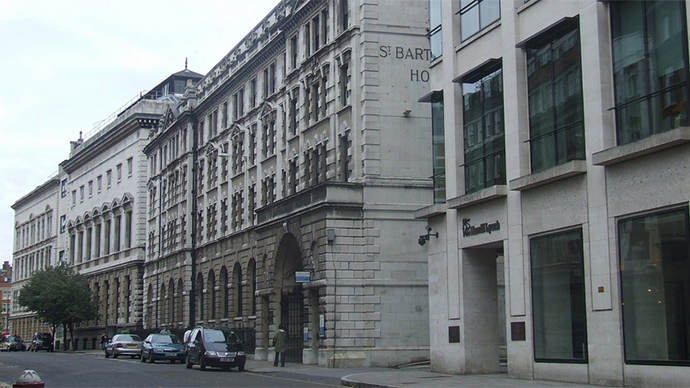Britain crippled by £222bn debt from backroom PFI deals – report

Each UK citizen has amassed a debt of £3,400 ($4,976) without even knowing about it. This is due to a UK government scheme that signed controversial deals with private companies to borrow money on behalf of the public and pledging to pay it back later.
The deals, which are known as Private Finance Initiatives (PFIs),
were used by London to pay for public infrastructure, such as
schools and hospitals. Signed with private enterprises, they
would allow the government to “buy now, pay later,” the
Independent on Sunday reports.
A problem is emerging though. Despite not having paid a penny,
every UK national is now in debt to the tune of £3,400 ($4,976)
because the cost of paying back the PFIs is growing every year.
2014 saw an increase of £5bn ($7.3bn) and this figure could rise
even higher with inflation.
The system has proved to be fantastic for private companies, who
are managing to reap large profits from investing in public
infrastructure. However, financial experts have labelled the
government’s policy a “financial disaster,” due to the
high amounts of interest accumulated.
The data has been verified by the National Audit Office (NAO) and
is based on more than 720 PFIs using data from the Treasury.
John Major’s Conservative government came up with the idea in
1992 to introduce PFIs, with Tony Blair and now David Cameron
continuing to use them to fund public spending.
READ MORE: House in Parliament? Activists want Westminster for social housing
Though PFIs have paid for assets worth £56.5bn ($82.70bn), the UK
will have to pay more than five times that under the PFI’s
leasing agreements. By 2049 the total bill for PFIs will be
£310bn ($453bn). Since 2012, London has managed to pay just one
percent of the total cost owed to paying off the PFIs.
“Frankly it’s very corrupt…no rational government, looking at
the interests of the citizenry as a whole would do this,”
said Jean Shaoul, a professor emerita at the Manchester Business
School, told the Independent on Sunday.
The government is facing a difficult situation. PFI’s do not take
account of the country’s economic climate, so if there was a
recession, they would not be adjusted accordingly. There are
unlikely to be any loopholes either, as the contracts run into
thousands of pages.
“Crippling PFI debts are exacerbating the funding crisis
across our public services, most obviously in our National Health
Service,” said TUC General Secretary Frances O’Grady.
READ MORE: ‘Mockery of democracy’: UK govt flip-flops, allowing fracking under National Parks
Even the Public Accounts Select Committee, chaired by Margaret
Hodge, whose job is to examine how the government spends its
money admitted, “I’m afraid we got it wrong…we got seduced by
PFI.”
While Danny Alexander, Chief Secretary to the Treasury for the
current government said last month, “Too many of the old PFI
deals were poorly negotiated with high costs draining local and
national coffers.”
The latest investigation into PFI comes after it was revealed in
December by MPs that a £10.5bn ($15.36bn) deal for new trains
through two PFIs were poorly managed and have transferred all the
risk to taxpayers.
“The Department for Transport’s decision to buy the new
trains…has left the taxpayer bearing all the risk. This means
that if passenger forecasts are wrong and fewer new trains are
needed in future taxpayers will have to pick up the bill,”
said Margaret Hodge MP, who chairs the Commons committee told the
Financial Times.












